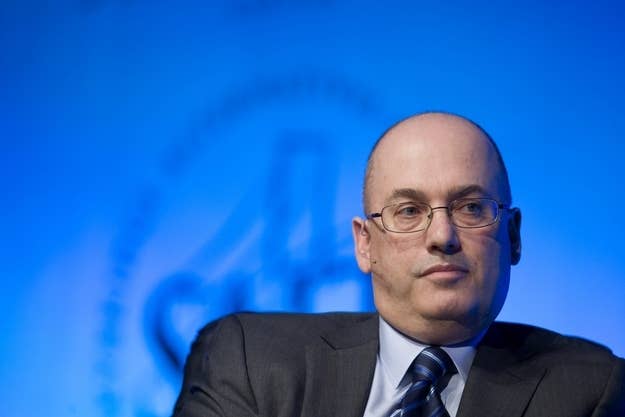
As investors in hedge fund SAC Capital continue to ask for redemptions, Steven Cohen, the $14 billion fund's chief, is weighing a move to a family office model.
But sources said Cohen is mistaken if he thinks he can hide from his legal troubles, which could include federal racketeering charges, by going the family office route.
"I don't quite understand why he'd think if he shuts down his business he can get out of his sanctions and his fines," said Marv Pollack, managing director at the Family Office Exchange.
To transition SAC Capital to a family office, Cohen would have to return to all the money invested in the fund by outside investors, which stood at about $5.6 billion as of mid May. That might not be much of a problem, however, as industry observers are predicting as much as $3.5 billion in redemption requests — if not more — by the end of the June 3 deadline.
Sources said Cohen may consider himself better off pulling out all of his own money — which represents over half of SAC's total assets — and heading for the privacy and lax regulatory environment of the family office world. Cohen has long resisted such a move, but with the Securities and Exchange Commission and federal regulators wrapping up a long insider trading probe that could result in criminal charges (hence the redemption rush), now seems like an ideal time to make the switch. Family offices can manage billions of dollars without having to register with the SEC, as long as they don't manage public money or have owners that aren't blood relatives.
"Hedge fund professionals do this for privacy and control in the management of their financial affairs," said Bob Casey, senior managing director for research at the Family Wealth Alliance, a family office consultancy. "You're not dealing with a bank or a broker, no one knows what money you have, what accounts you have, where they are. You have complete control over everything that's going on, no one knows anything."
But it will be virtually impossible for Cohen to keep all 1,000 of his current employees, meaning that as the layoffs come there's a solid chance one or more disgruntled former employees may start talking to authorities.
After all, the SEC's Whistleblower Program can be extremely lucrative. Through the SEC program, whistleblowers can report wrongdoing anonymously and stand to rake in a minimum of 10% and as much as 30% of the monetary sanctions collected. Using the $616 million Cohen recently paid regulators to settle some of the insider trading charges, that would equate to $61.6 million on the low end and more than $200 million at the high end.
"The alleged misconduct being investigated at SAC is quite significant," said Jordan Thomas, partner at Labaton Sucharow and a former assistant director in the enforcement division of the SEC who specializes in representing whistleblowers. "The potential payday for SAC employees could be quite significant, and you don't have to have totally clean hands. If an SAC employee knows of misconduct and they're looking for the next big thing, a whistleblower award associated with what they know could be it."
As for how likely a whistleblower coming out of SAC Capital is, only time will tell. But regulators are willing to pay millions for good information.
"The success of the government's case," Thomas said, "is likely to depend upon having one of those people."
